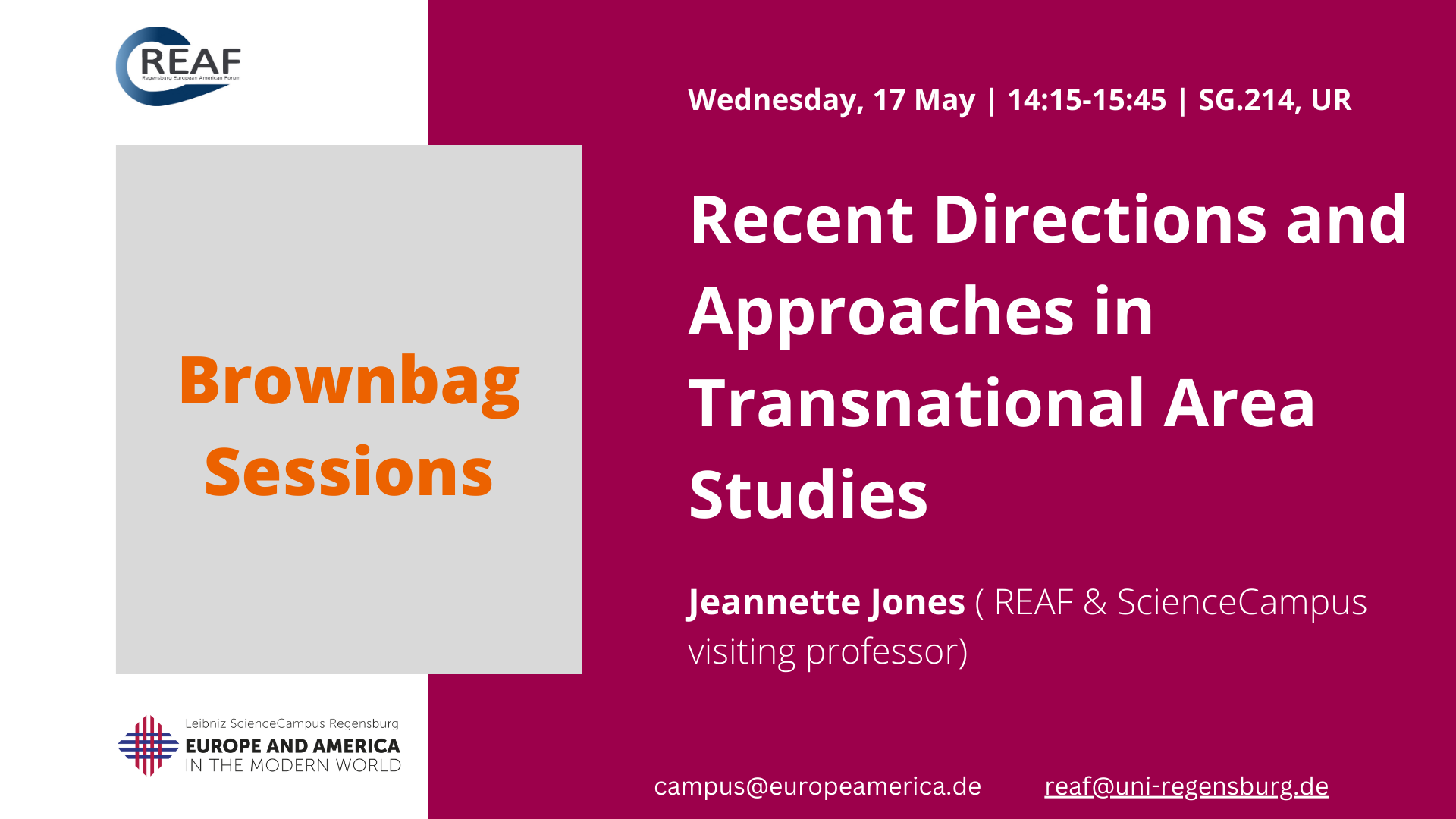Brownbag Session | 17 May, 14:15 | Jeannette Jones - Recent Directions and Approaches in Transnational Area Studies
When? Wednesday, 17 May 2023, 14:15-15:45
Where? SG.214 (Sammelgebäude), UR Campus
open to all members of the UR and IOS
bring your lunch if you like!
The ScienceCampus and REAF are delighted that our visiting professor Jeannette E. Jones (Nebraska-Lincoln) will be giving a Brownbag talk on 17 May at 14:15 in SG.214 addressing recent developments in area studies and global studies. She will reflect on how programmes in these fields work at her home institution, looking at how disciplinary and regional expertise intersects and interacts.
Everyone is welcome to attend this event, from staff and students to professors. You are welcome to enjoy your lunch during this more informal session, as well as some coffee, drinks and snacks provided by the hosts.
Abstract
In my talk, I want to tease out the tensions between "traditional" Area Studies and Global Studies, particularly in the context of the U.S. academy. More specifically, I am thinking about the rise of Global Studies programs in the United States and its impact on fields like Latin American Studies, African Studies, and American Studies. Many global studies programs tout their interdisciplinarity and their emphasis on "the interconnected nature of our modern world," moving "from specific sites and objects towards global connections" (University of Chicago). The program at my own institution—the University of Nebraska-Lincoln-- explains that it "prepares students for a changing and complex world by increasing their knowledge of global issues and developing their skills in critical thinking, communication, and logical analysis. The interdisciplinary program is designed to help students understand the growing connectedness and diversity of interactions at the global level." As a scholar of the United States in the World, I understand and embrace such approaches. However, I want to discuss how the lack of regional expertise and dearth of knowledge about national histories can render certain "global histories" unilluminating. I will demonstrate how Americanist scholars of the last twenty years have demonstrated that one can be both an area specialist and attend to the questions, methodologies, and approached embraced by global studies.

